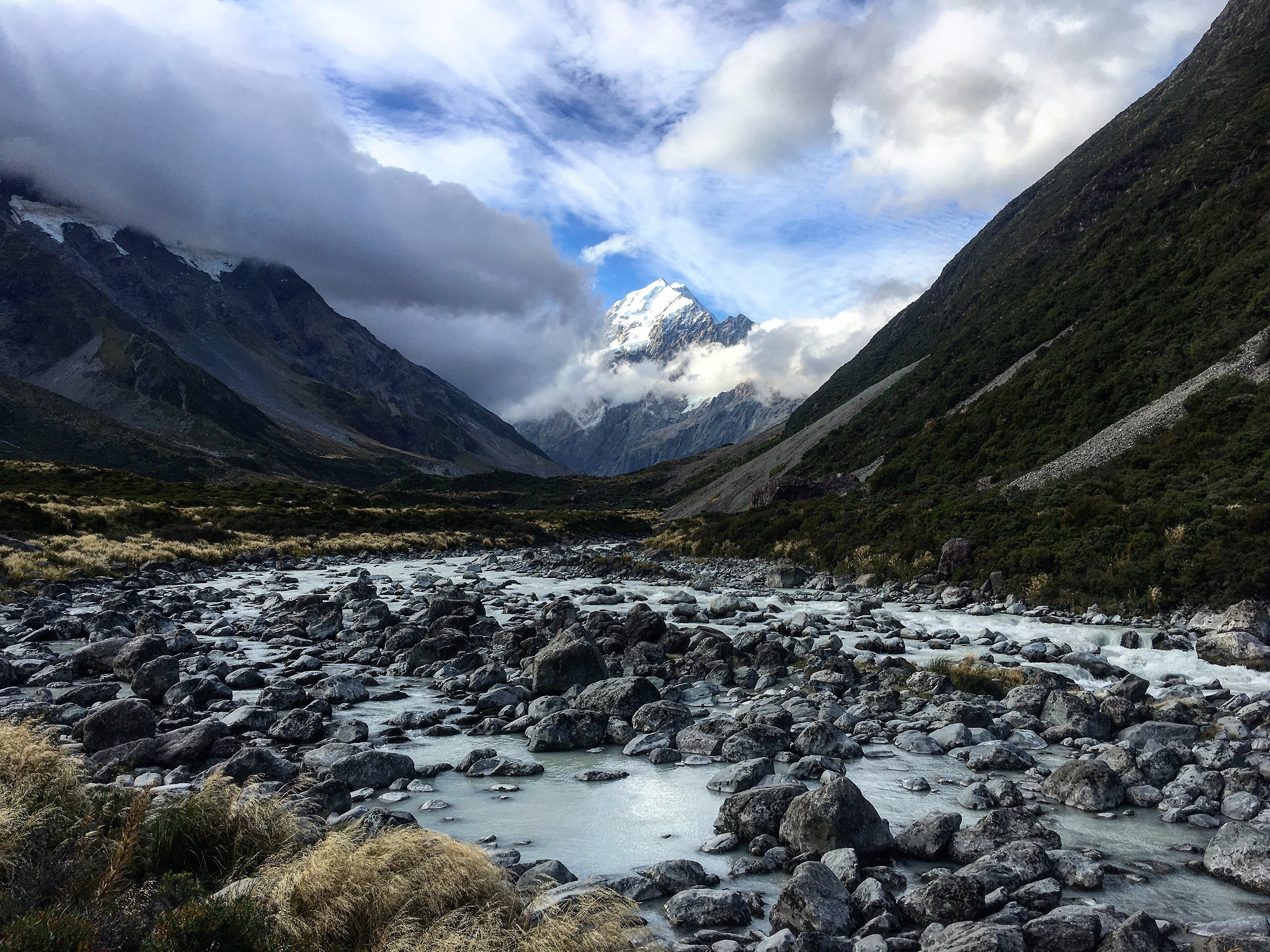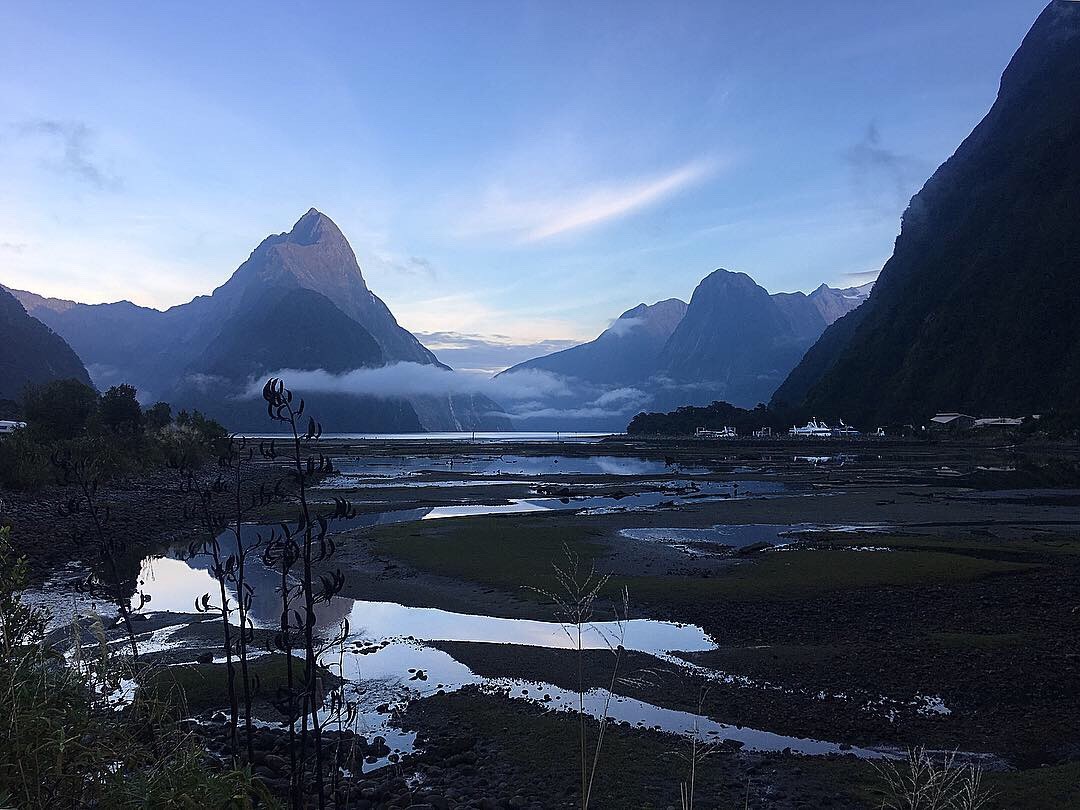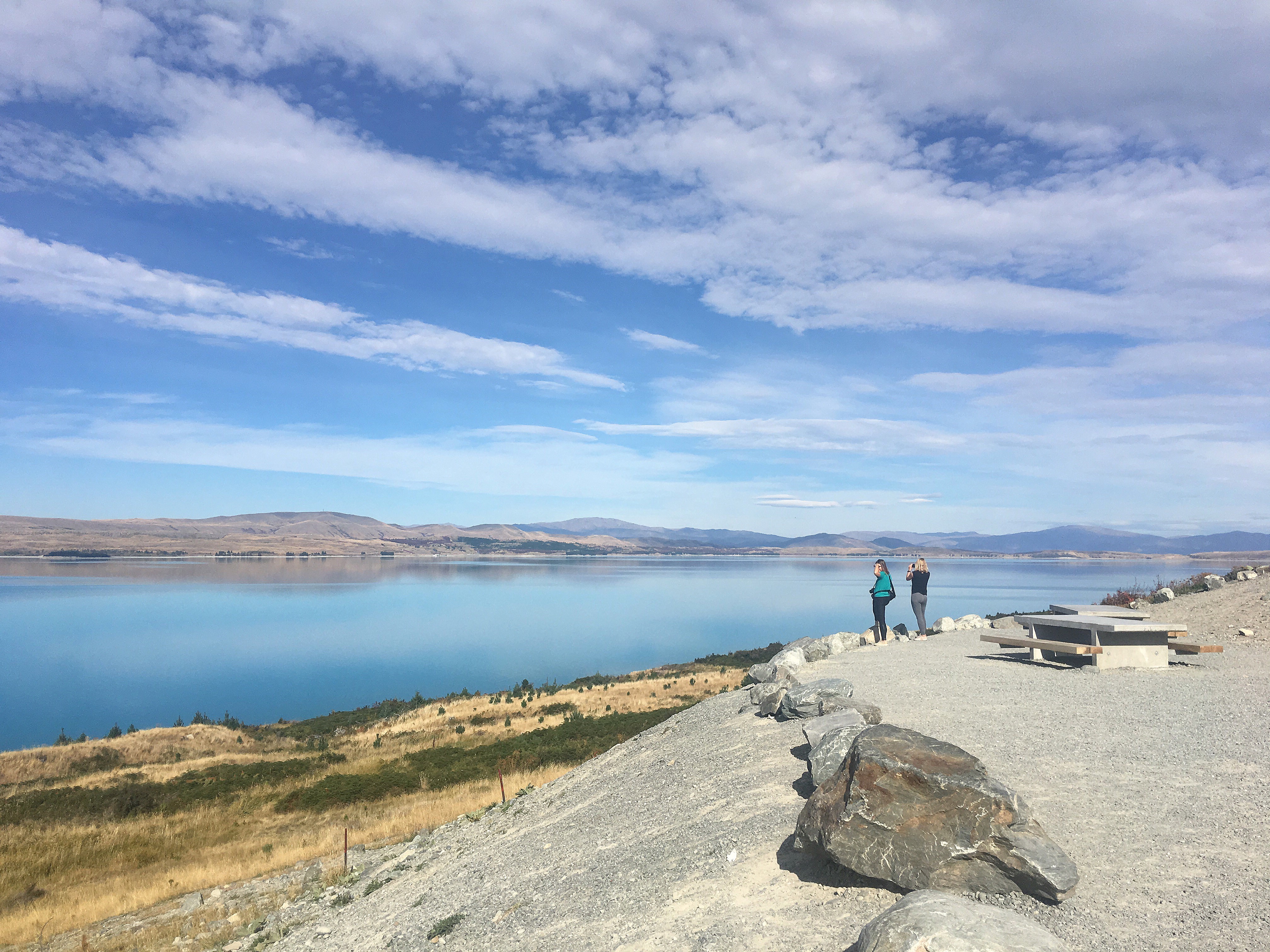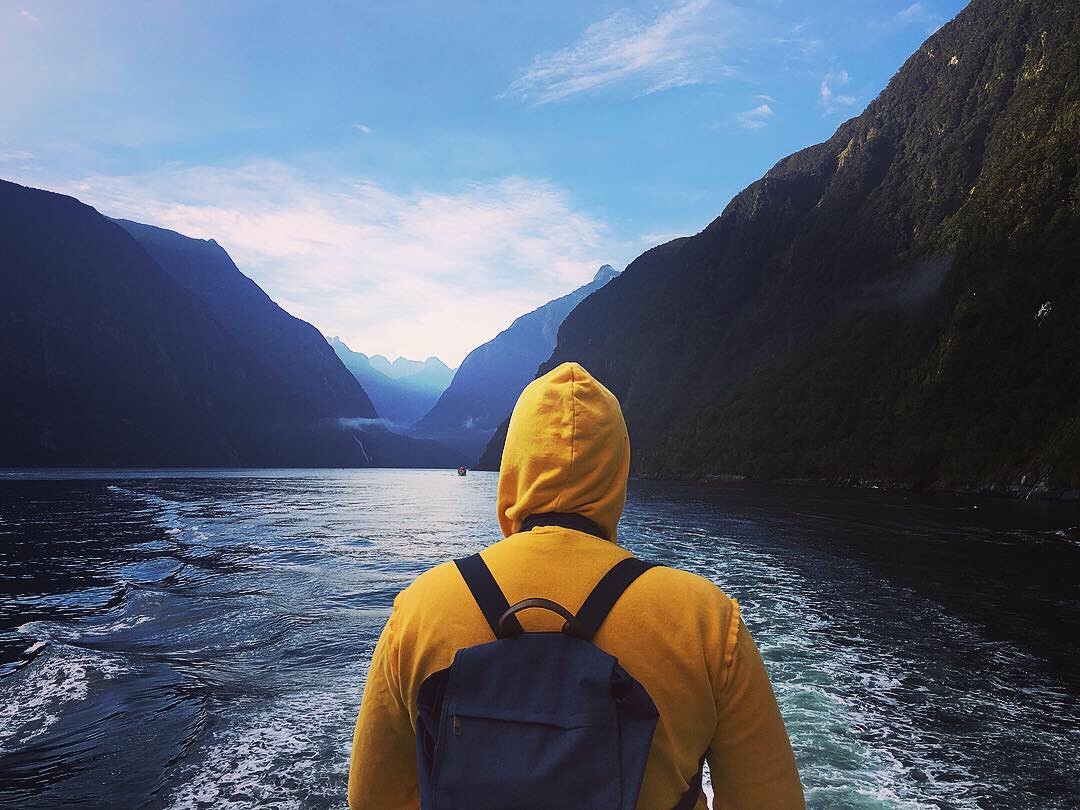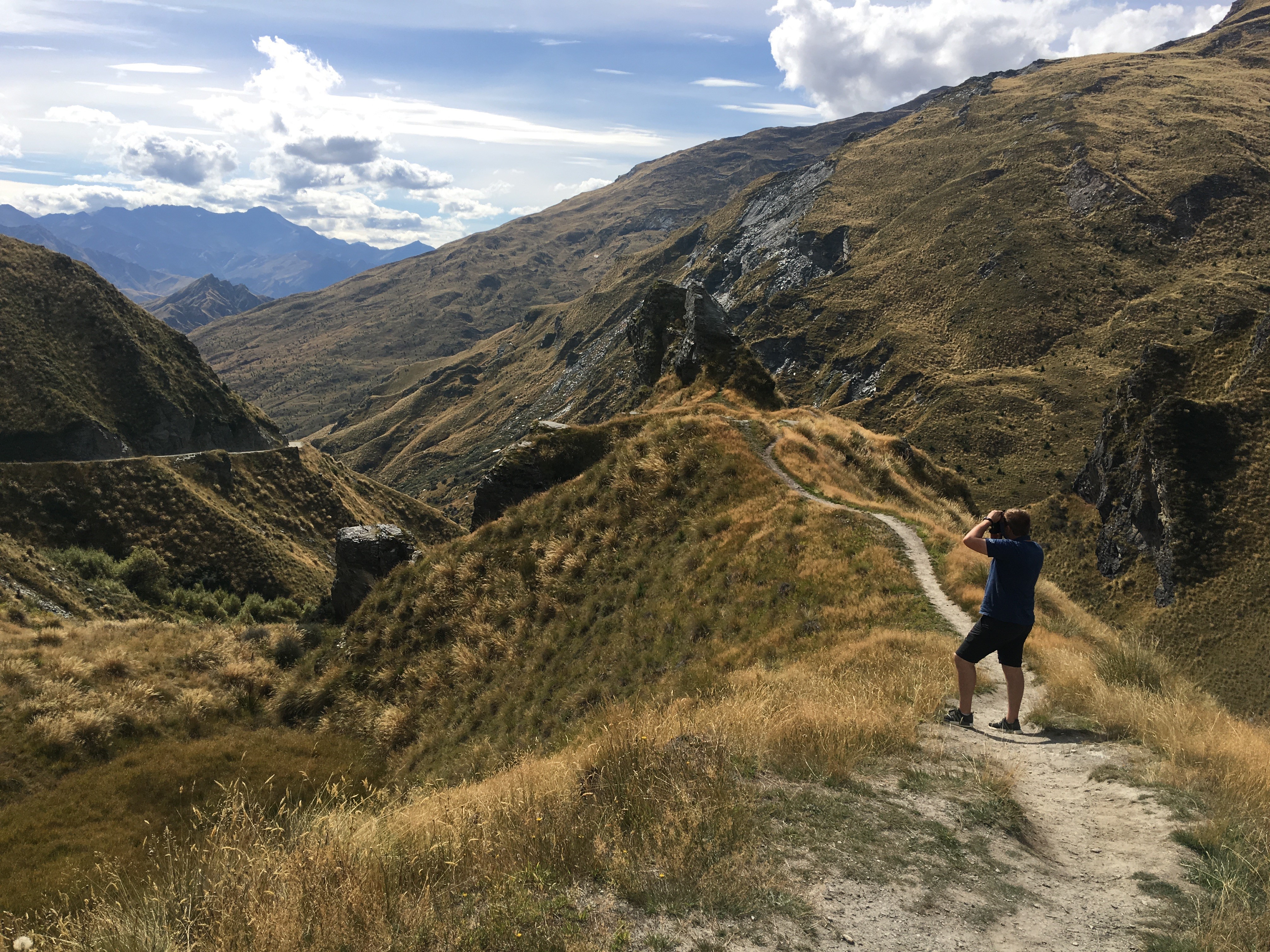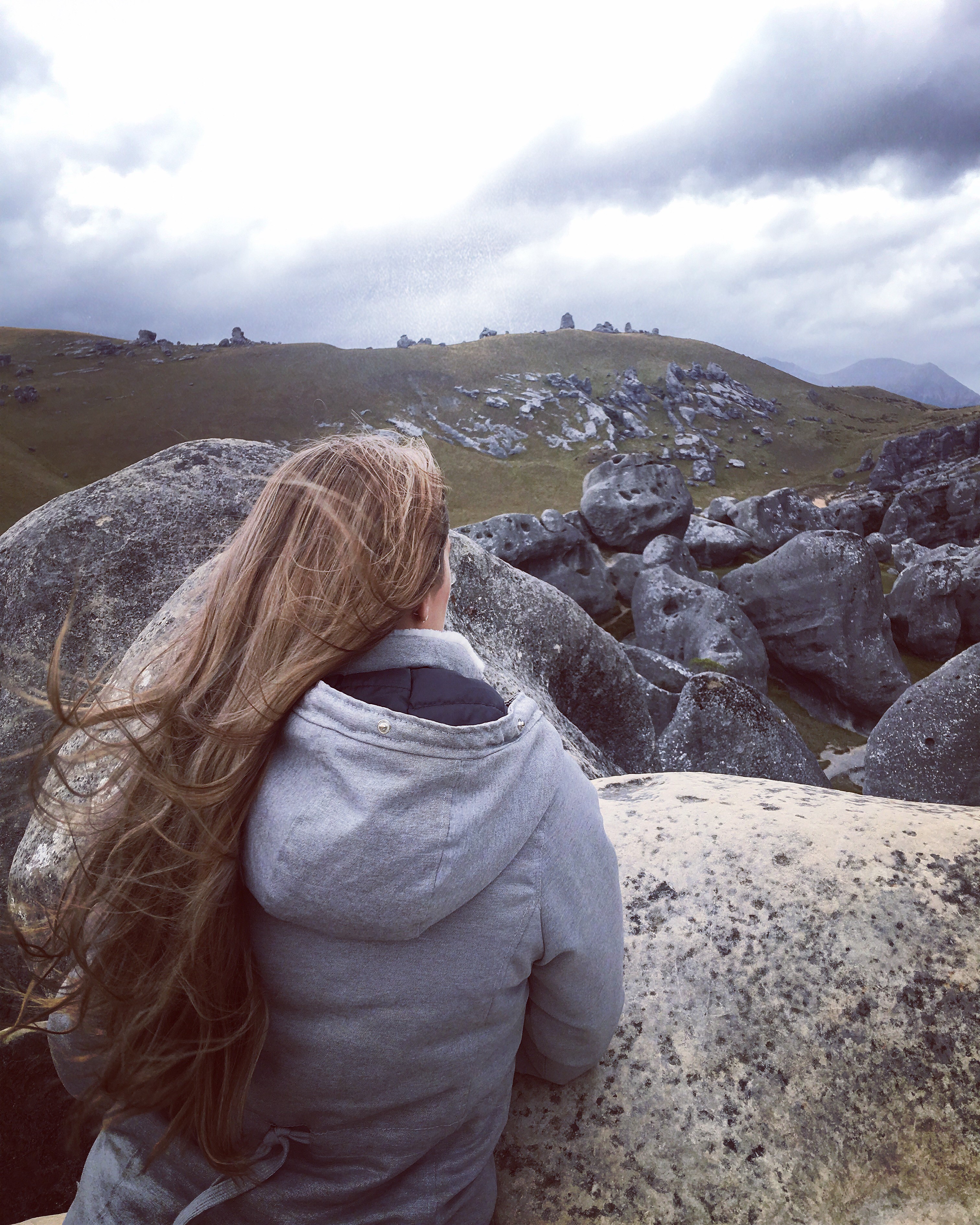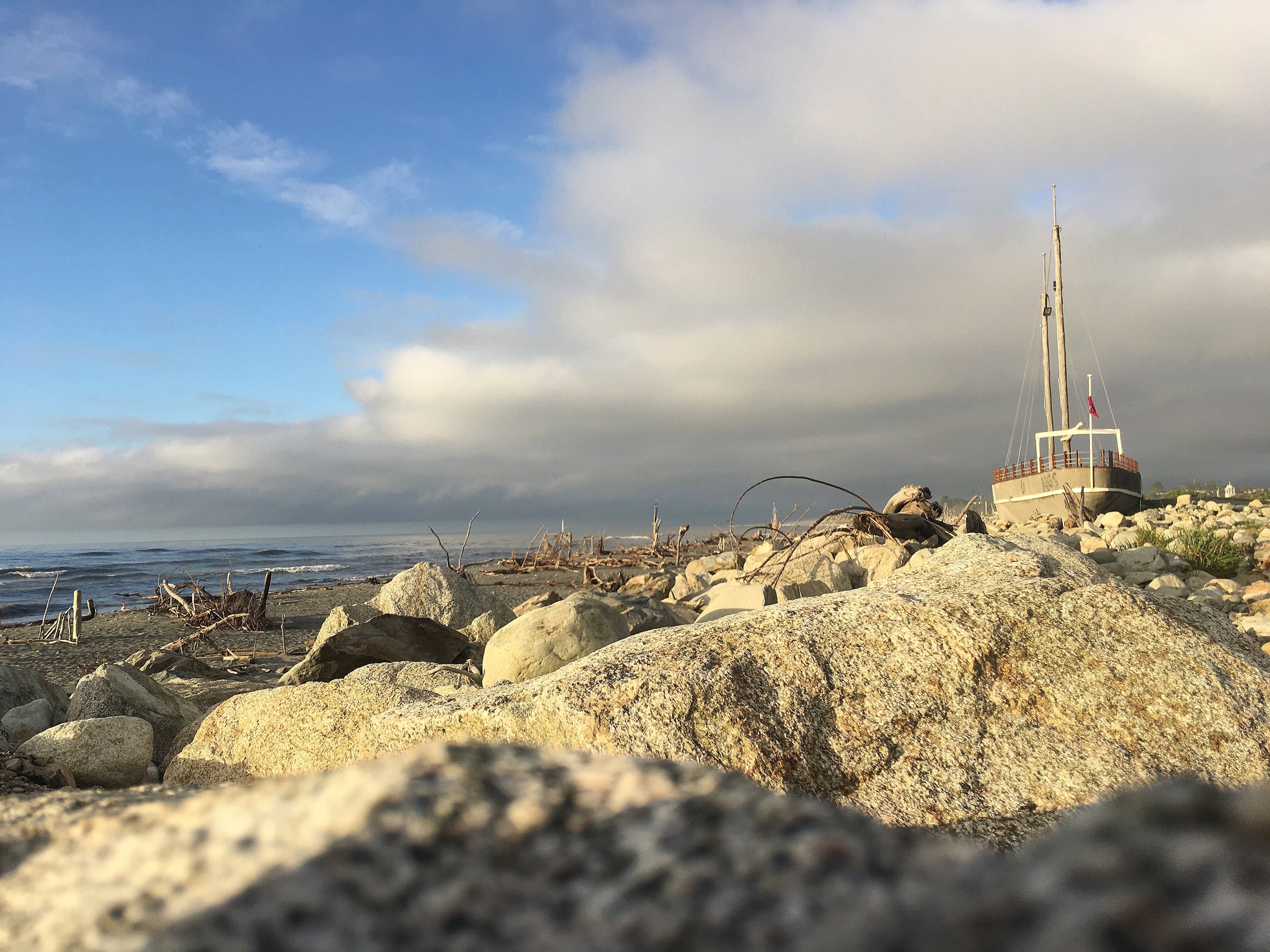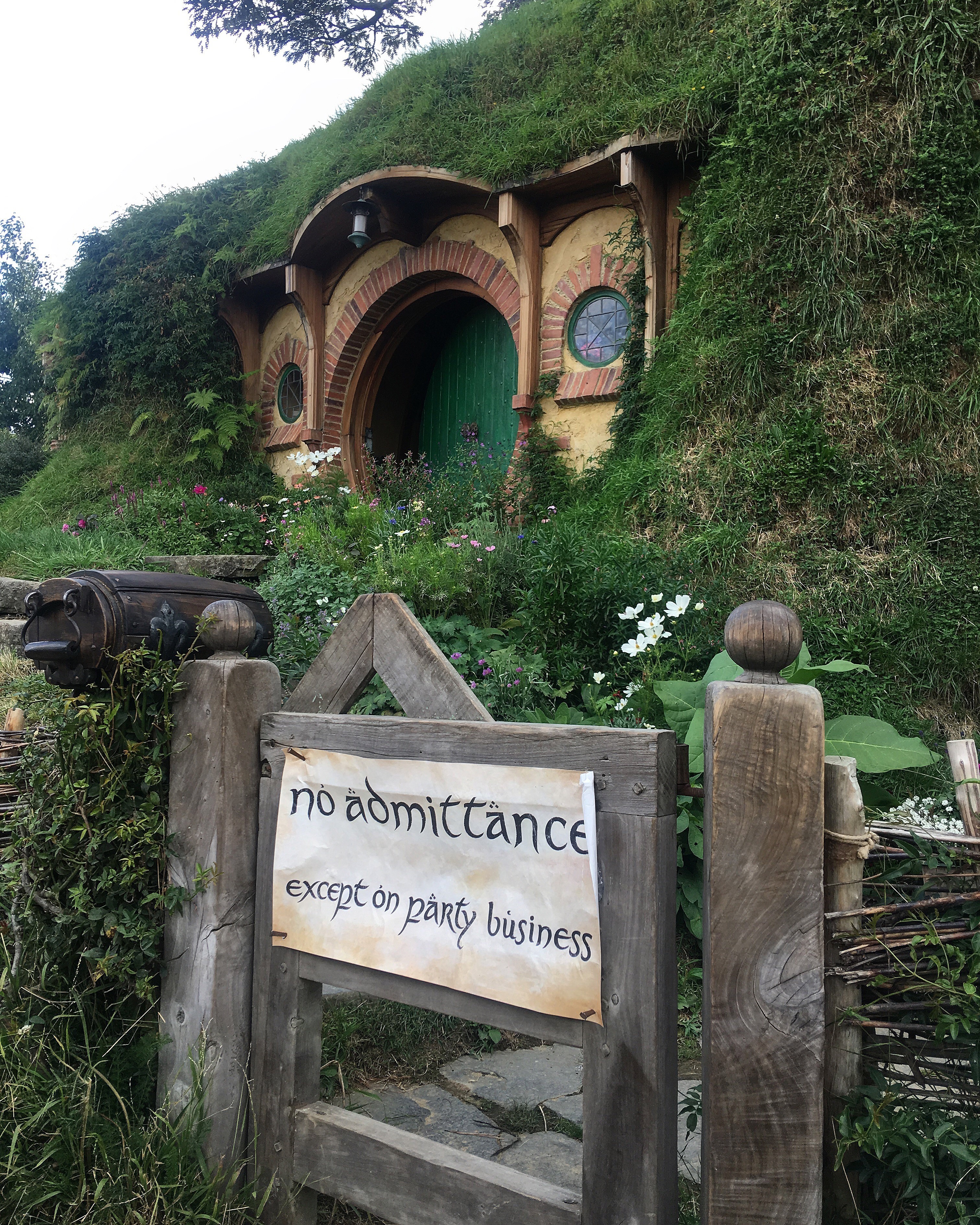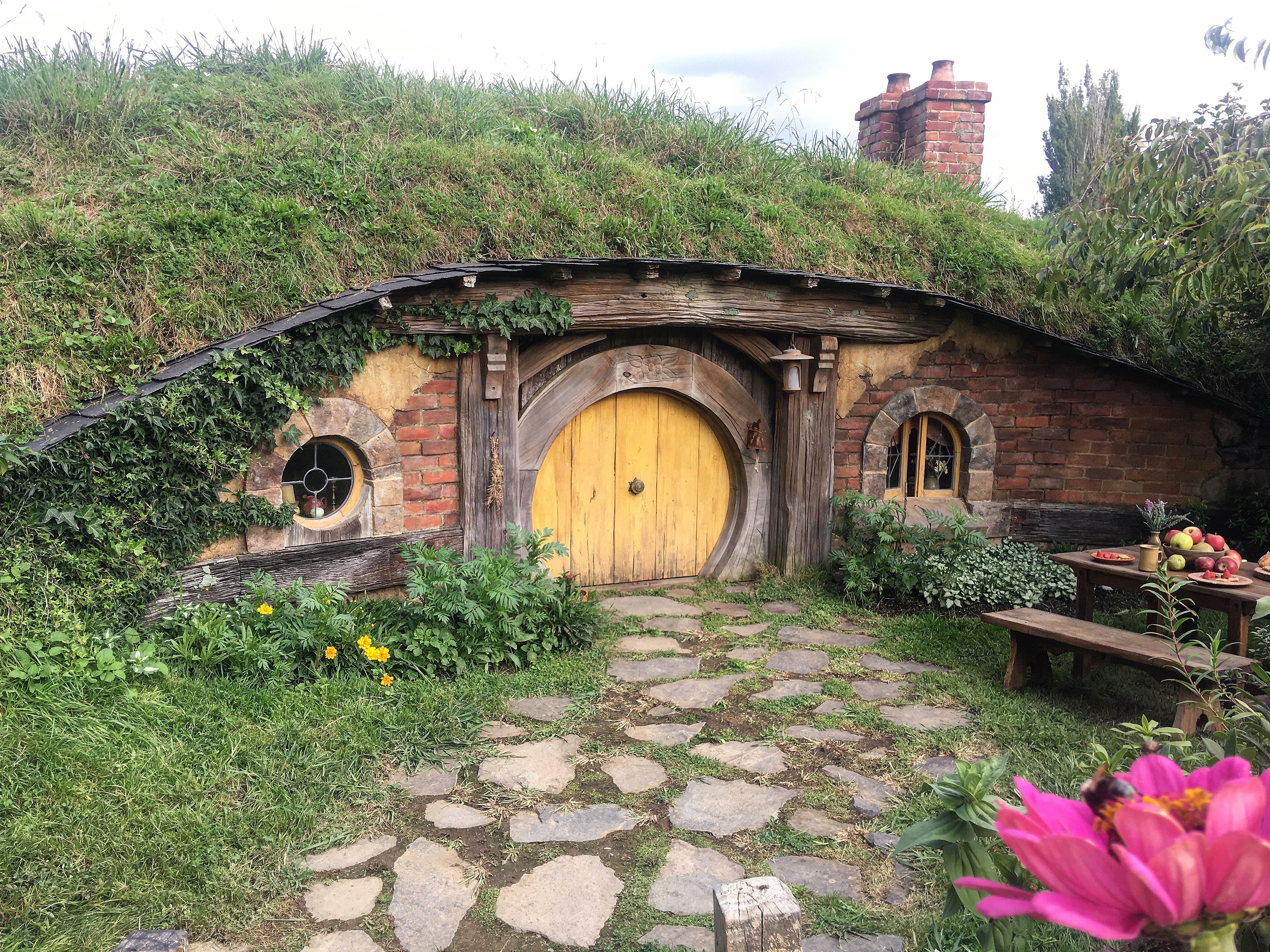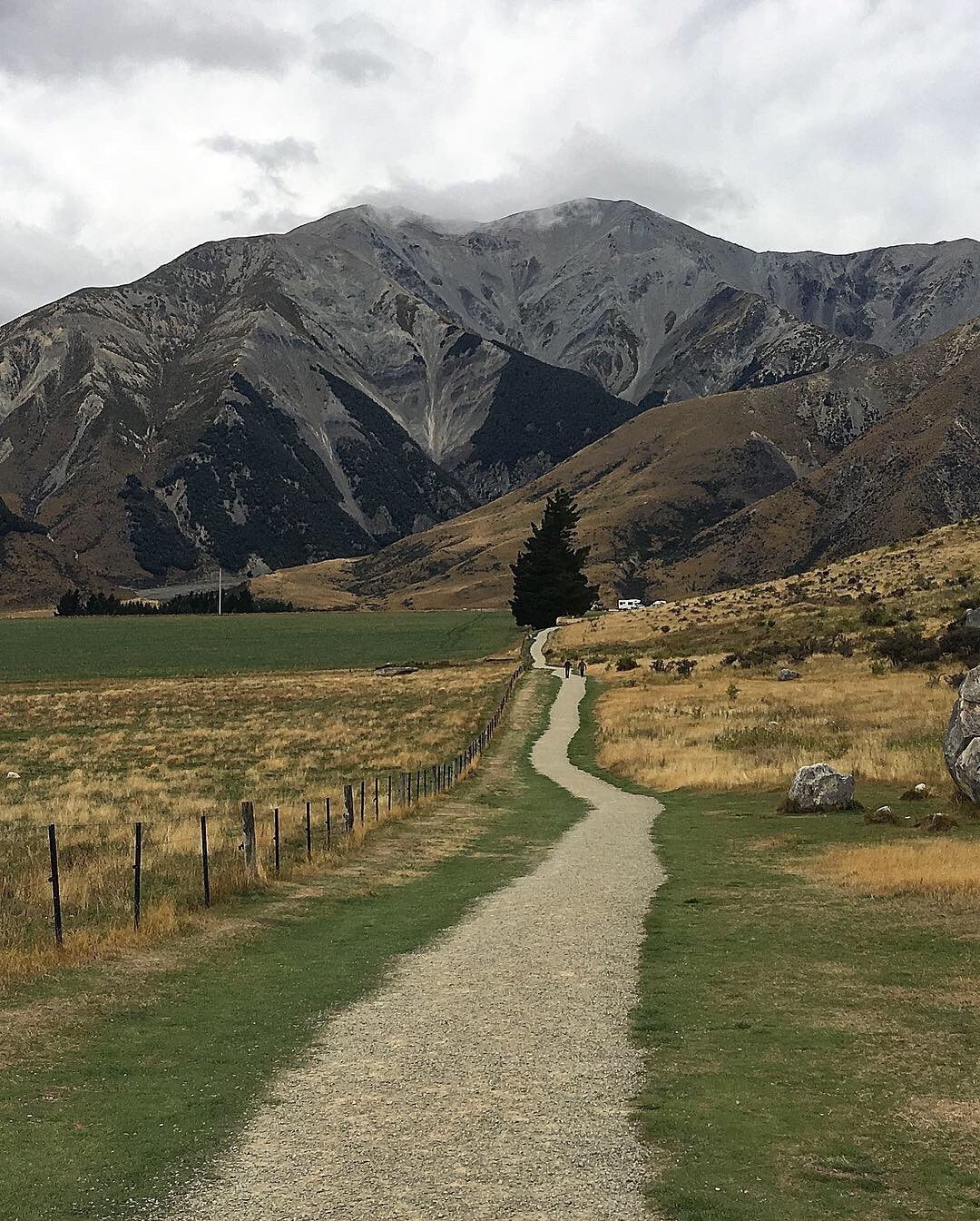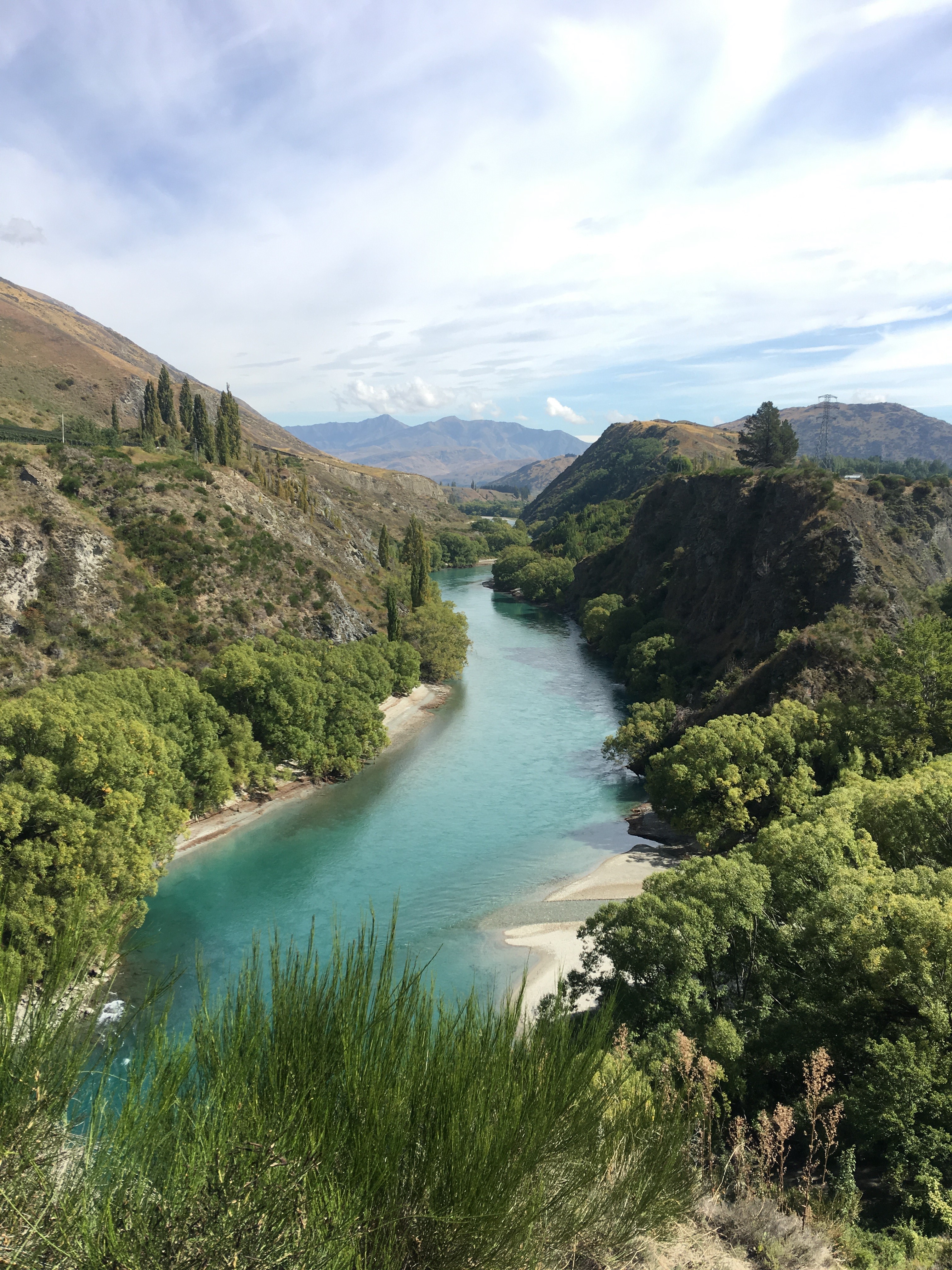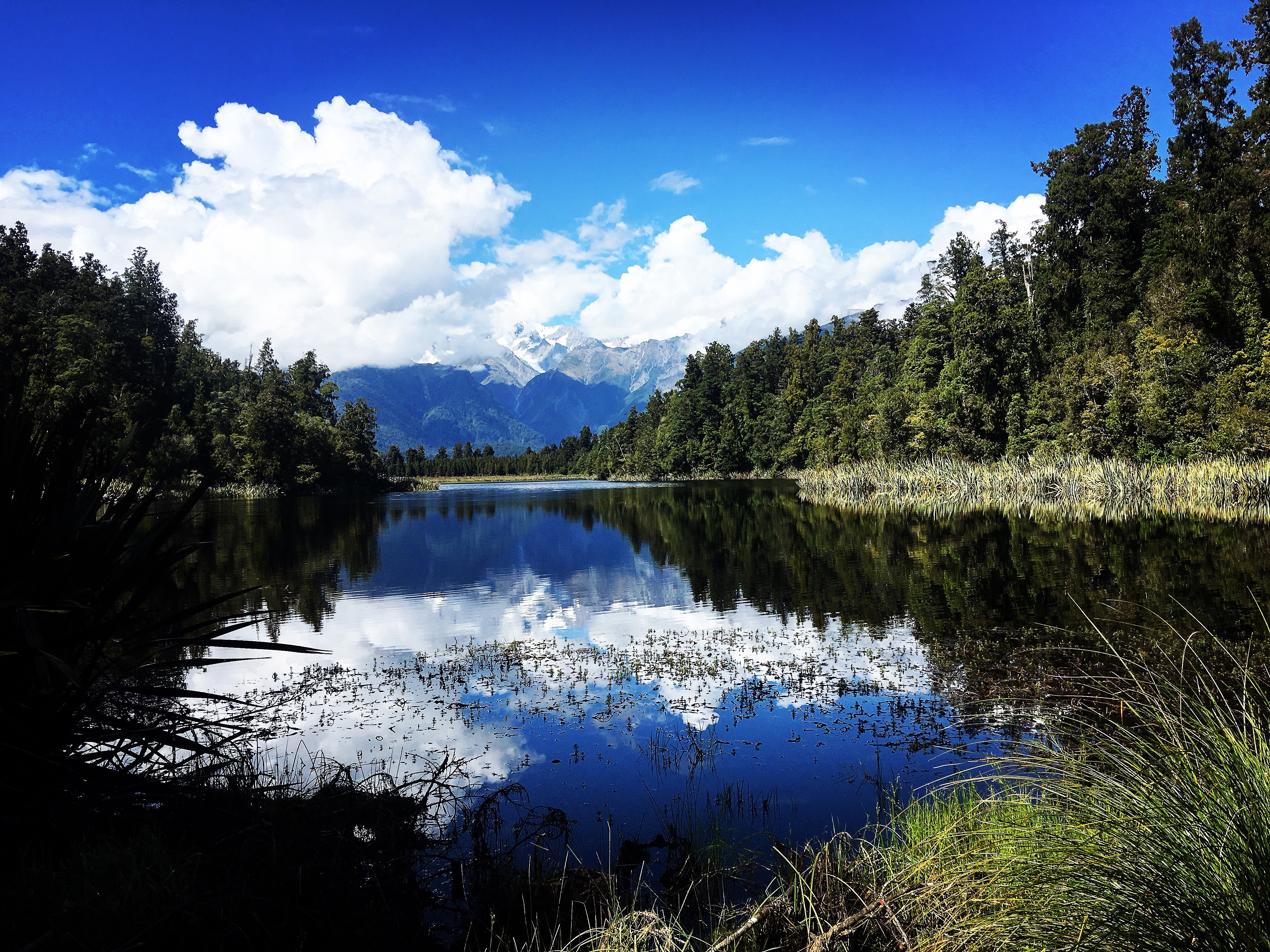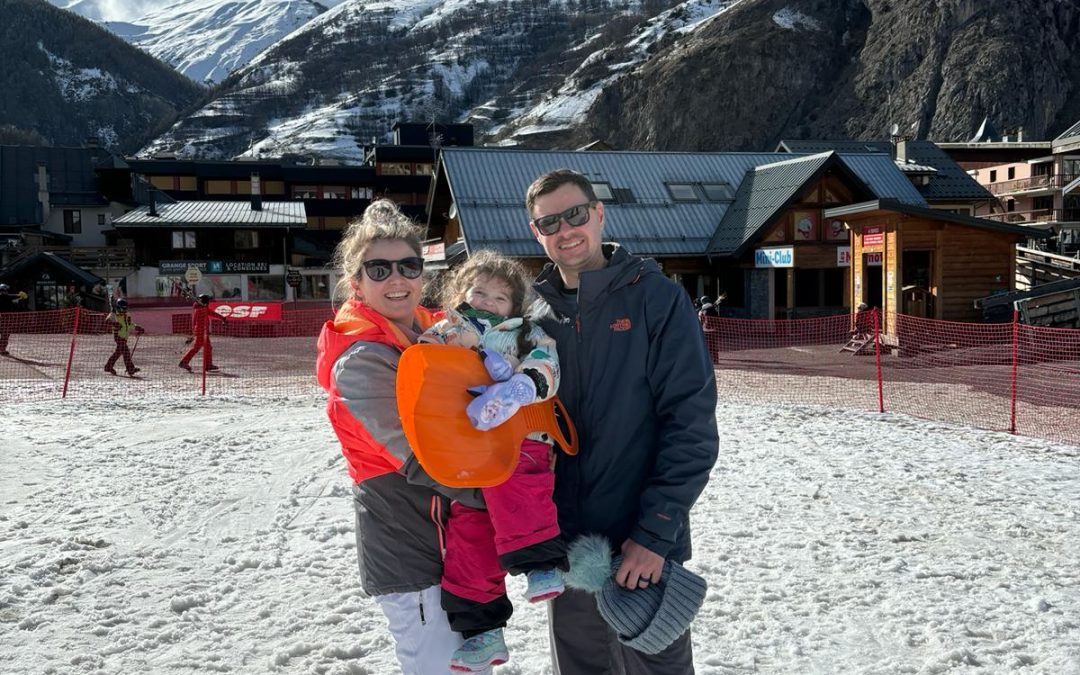As you know by now (because we are talking about it all the time!), we have recently visited New Zealand, and we have returned with lots of memories (and little money) and properly enchanted.
It’s the land of Kiwi birds, Kea (the South Island’s mountain parrots), Pukeko, plumes, wildflowers and wild fruits, glow-worm caves, giant kauri pines, hobbits, mountains and vast hills, winding highways, forests, cheerful mailboxes, Manuka honey, silver ferns, boiling, steaming craters, fjords, Maori culture, volcanoes that you can climb with woolly sheep, The Green Parrot, epic The Lord of the Rings/The Hobbit scenery. The country where Afrikaners get away with pub names like Bok Bef@k, where the speed limit on highways is 65 km/h at a turn in the road, where you have to look everywhere for dustbins, where you will find a village called Bulls. New Zealand, the country with Anzac biscuits, pineapple lumps, pies and pavlova, chocolate marshmallow fishes, gingerbread brownies, Watties and Whittaker’s.
Here are our lessons learned that you could keep in mind when travelling to New Zealand:
- Your hiking boots are the only shoes you need to pack. And maybe a pair of fish flip-flops, but nothing more. You will just waste the space in your suitcase.
- Take insect repellent. Not for mosquitoes, but for namu (sandflies in Maori) that will attack you on hiking trails near water.
- Remember your sunscreen. The sun over there is searing.
- Also pack a cheap raincoat. Sometimes the drizzle on the island catches you off guard.
- Take lots of money. Sterling silver jewellery is cheaper than in South Africa.
- Husbands, keep your cameras handy! It’s great fun to see your wife cleaning the car windows at a petrol station.
- Take your Fitbit/smart watch. You can easily reach your daily goal of 10 000 steps within three hours.
- Press your cool box flat and pack it. Litre bottles of cool drink are cheap, and small bottles and cans are very expensive. Just like yoghurt.
- Before paying for tourist activities at great expense, first check if you can’t enjoy the same thing for free on foot.
- Takeaway meals are twice the price of those in South Africa. The average cost of Chow Faan or Chow Mein is R160, and of McDonald’s or Burger King R120 a meal. We had Watties (their McCain’s) almost every day. The average cost of a pre-prepared meal that you can quickly heat in a microwave is about R70. However, at an average of R50 per pizza, their Domino’s Pizza is cheaper than in South Africa.
- If you want to go camping, you’ll need a tent, inflatable mattress, mosquito net (for the sandflies) and utensils for preparing your food. We visited North and South Island, and you’ll need a proper sleeping bag and blanket as the nights are cool. Many campsites are free of charge and located in places with the most beautiful nature, but there are only basic facilities. The best way to experience New Zealand is with an RV/camper van.
- If you get car- or seasickness, rather pack your Valoid. It may come in handy.
- Take some triangular-folded shopping bags. New Zealand is the country where it is the hardest to find a dustbin for your garbage.
- Drive carefully and patiently. The roads are winding and drives take longer than we are used to. Although the speed limit is 100 km/h, motorists take risky chances at blind rises and we have seen some road accidents.
- Rather fill up at a filling station where you have to pay inside. If something goes wrong with your payment at a self-service filling station, nobody can help you.
- Buy a SIM card at the airport. Data in New Zealand is inexpensive, and you will not only be able to talk to your loved ones in South Africa every day, but also enjoy peace of mind with Google Maps.
- Greet the staff in shops from the outset; otherwise they will greet you when you walk past and make you feel bad because you didn’t greet first.
- Relax and leave your preparedness at home. There is no crime. You don’t have to be scared by noises at night or lock your vehicle. Nobody wants to take your stuff. Enjoy the piece of heaven.
AIRBNB
Except for four nights we stayed with family and friends, we made use of Airbnb. We had three nights’ bad experience, and it wasn’t nice to shudder at the thought of showering and going to bed.
Here is some advice on Airbnb:
* Choose one with an older woman as a hostess.
* Go for a price range between R1 000 and R1 500 per night. Then you should like the place, and it should be neat and clean. If it’s not, you may complain.
* You are requested to review your experience after each night at an Airbnb. Be honest. If the place was disappointing or dirty, don’t be afraid to criticise it. Airbnb will haul people over the coals for selling you a pig in a poke.
* If you want to stay independently, choose the “House” option when looking for accommodation. It will give you more privacy than sleeping in people’s homes where you have a bedroom only for yourself.

